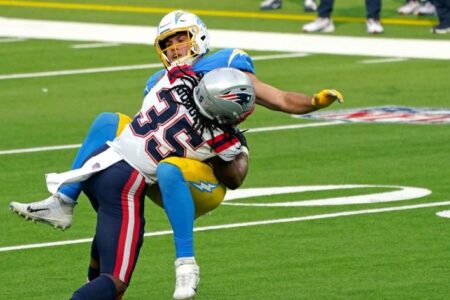Ring 6
PatsFans.com Supporter
PatsFans.com Supporter
2021 Weekly Picks Winner
2022 Weekly Picks Winner
- Joined
- Sep 13, 2004
- Messages
- 63,761
- Reaction score
- 14,113
Is there a rule that you cannot tag a player and trade them, or tag them in order to trade them?
There is RAMPANT speculation, even people talking about teams filing grievances against with the league, and speculation that BB (aka scummy rule breaker) will just lie to pretend that wasn't his intention.
Can someone PLEASE once and for all clarify and show where this RULE exists?
I'm guessing Miguel would be the authority.
Please do not respond with opinion, guess or uncertainty.
Cousin's girlfriends uncle's neighbors bosses barber does not count as authority.
There is RAMPANT speculation, even people talking about teams filing grievances against with the league, and speculation that BB (aka scummy rule breaker) will just lie to pretend that wasn't his intention.
Can someone PLEASE once and for all clarify and show where this RULE exists?
I'm guessing Miguel would be the authority.
Please do not respond with opinion, guess or uncertainty.
Cousin's girlfriends uncle's neighbors bosses barber does not count as authority.


















